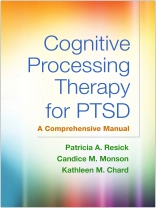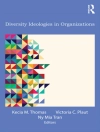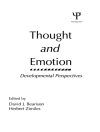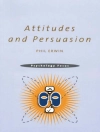The culmination of more than 25 years of clinical work and research, this is the authoritative presentation of cognitive processing therapy (CPT) for posttraumatic stress disorder (PTSD). Written by the treatment’s developers, the book includes session-by-session guidelines for implementation, complete with extensive sample dialogues and 40 reproducible client handouts. It explains the theoretical and empirical underpinnings of CPT and discusses how to adapt the approach for specific populations, such as combat veterans, sexual assault survivors, and culturally diverse clients. The large-size format facilitates photocopying and day-to-day use. Purchasers also get access to a Web page where they can download and print the reproducible materials. CPT is endorsed by the U.S. Departments of Veterans Affairs and Defense, the International Society of Traumatic Stress Studies, and the U.K. National Institute for Health and Care Excellence (NICE) as a best practice for the treatment of PTSD.
Tabla de materias
I. Background on Posttraumatic Stress Disorder and Cognitive Processing Therapy 1. The Origins of Cognitive Processing Therapy 2. Research on CPT II. Setting the Stage Clinically 3. Treatment Considerations 4. Preparing to Deliver CPT III. CPT Manual 5. Overview of PTSD and CPT: Session 1 6. Finding Stuck Points: Sessions 2 and 3 7. Processing the Index Event: Sessions 4 and 5 8. Learning to Self-Challenge: Sessions 6 and 7 9. Trauma Themes—Safety, Trust, and Power/Control: Sessions 8–10 10. Esteem, Intimacy, and Facing the Future: Sessions 11–12 and Aftercare IV. Alternatives in Delivery and Special Considerations 11. Variations on CPT: CPT with Written Accounts, Variable-Length CPT, and CPT for Acute Stress Disorder 12. Group CPT and CPT for Sexual Abuse 13. Issues in Working with Different Trauma Types 14. Diversity and Cross-Cultural Adaptations References
Sobre el autor
Patricia A. Resick, Ph D, ABPP, is Professor of Psychiatry and Behavioral Sciences at Duke University. She began developing and testing cognitive processing therapy (CPT) in 1988 at the University of Missouri-St. Louis, where she founded the Center for Trauma Recovery and was an Endowed Professor, and subsequently has worked with Candice M. Monson and Kathleen M. Chard to refine and further test the approach. Dr. Resick has served as president of the International Society for Traumatic Stress Studies (ISTSS) and the Association for Behavioral and Cognitive Therapies (ABCT). She is a recipient of the Robert S. Laufer Memorial Award for Outstanding Scientific Achievement in the field of traumatic stress from the ISTSS, the Leadership Award from the Association of VA Psychologist Leaders, the Outstanding Contribution by an Individual for Educational/Training Award from the ABCT, and the Lifetime Achievement Award from Division 56 (Trauma Psychology) of the American Psychological Association. Candice M. Monson, Ph D, is Professor of Psychology at Ryerson University in Toronto, Ontario, Canada. A Fellow of both the American and Canadian Psychological Associations, she is a recipient of the Traumatic Stress Psychologist of the Year Award from the Canadian Psychological Association, the Distinguished Mentorship Award from the International Society of Traumatic Stress Studies, and the Award for Excellence in Professional Training from the Canadian Council of Professional Psychology Programs. Dr. Monson is well known for her research on interpersonal factors in traumatization and the development, testing, and dissemination of treatments for posttraumatic stress disorder (PTSD), including cognitive processing therapy and cognitive-behavioral conjoint therapy for PTSD. Kathleen M. Chard, Ph D, is Associate Chief of Staff for Research at the Cincinnati Veterans Affairs (VA) Medical Center and Professor of Psychiatry and Behavioral Neuroscience at the University of Cincinnati. As the VA Cognitive Processing Therapy (CPT) Implementation Director, Dr. Chard oversees the dissemination of CPT to VA clinicians across the United States. She is an associate editor of the Journal of Traumatic Stress and a board member of the International Society for Traumatic Stress Studies. Dr. Chard is a recipient of the Mark Wolcott Award for Excellence in Clinical Care Leadership from the VA and the Heroes of Military Medicine Award from the United Service Organization. Known for her research on dissemination and clinical implementation of evidence-based treatments for civilians and veterans, she is the creator of the CPT for Sexual Abuse manual.












